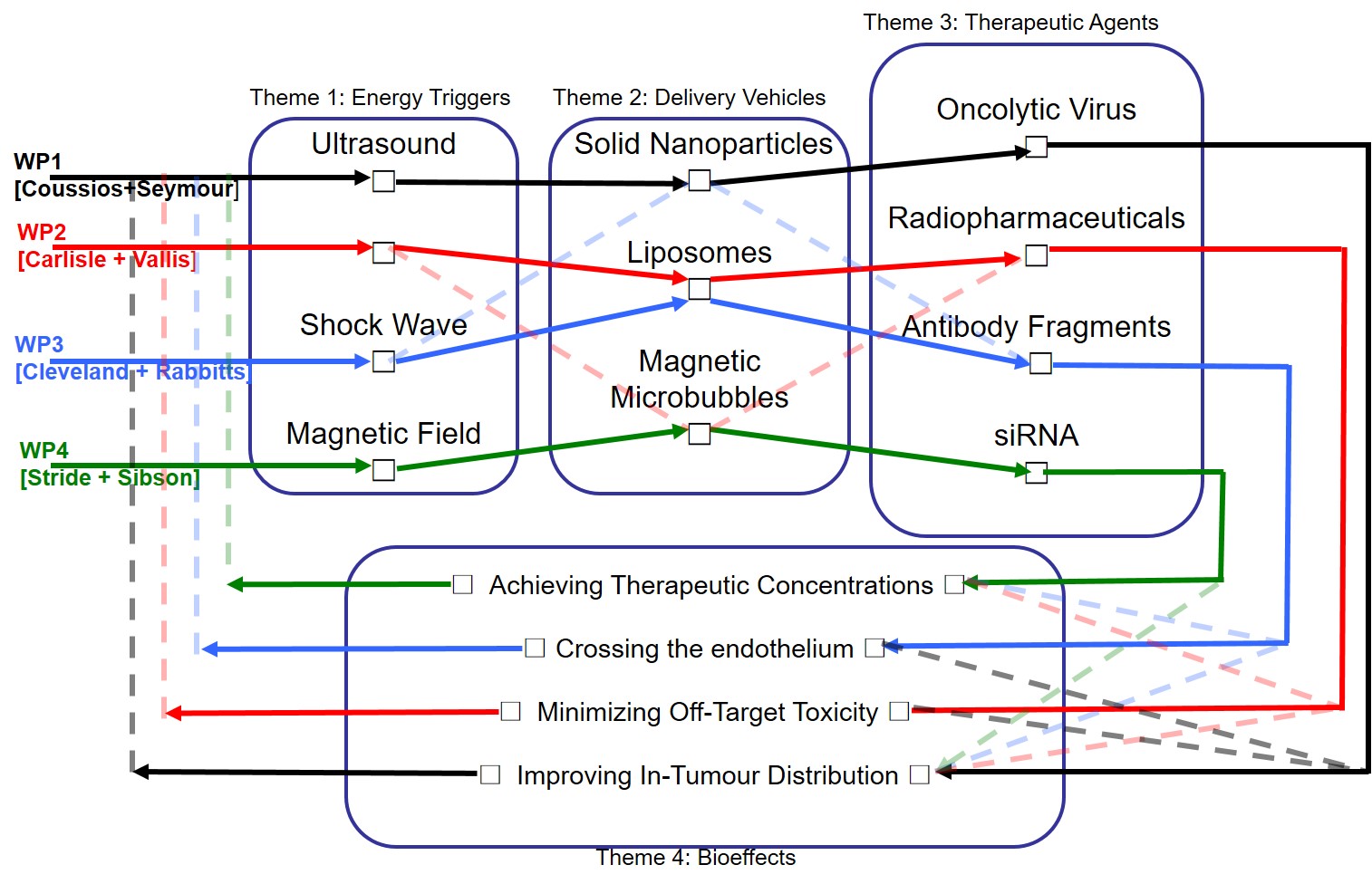About OxCD3
Device + Drug = Tomorrow's Cancer Therapies
The Oxford Centre for Drug Delivery Devices (OxCD3) is a £10.1m multi-disciplinary research centre supported by a 5-year EPSRC Programme Grant in partnership with 12 industrial partners from across the medical device and pharmaceutical sectors. The Centre aims to develop engineering approaches, from inception to manufacture, for device-based delivery of novel classes of anti-cancer therapeutics including siRNA, radiopharmaceuticals, viruses and antibodies. A key focus of OxCD3 is the exploitation of physical mechanisms triggered by ultrasound, magnetic fields or shock waves, to improve the delivery and penetration of drugs into tumours.
Programme of Work
There are 4 Work Packages (WP) which define the core areas of expertise within the Centre: Energy Triggers; Delivery Vehicles; Therapeutic Agents and Bioeffects, as summarised below:

Work Package 1
Ultrasound & Solid Nanoparticles for Viral Delivery
Leaders: Professor Constantin-C. Coussios & Professor Len Seymour
WP1 will modify oncolytic viruses to enhance their delivery with ultrasound, through conjugation of sonosensitive nanoparticles to the virus in order to facilitate inititation of acoustic cavitation whilst simultaneously shielding the virus from the immune system.
Work Package 2
US-Triggered Liposomes for the delivery of radiopharmaceuticals
Leaders: Professor Robert Carlisle & Professor Katherine A. Vallis
WP2 will focus on encapsulation of radiopharmaceuticals into ultrasound-triggerable liposomes to achieve desirable pharmacokinetic profiles during delivery to the tumour and enhanced selectivity of release and bioavailability upon arrival within the tumour.
Work Package 3
Shock Wave Delivery of Antibody Fragments
Leaders: Professor Robin Cleveland & Professor Terence Rabbitts
WP3 will investigate shock-wave therapy strategies for the improved delivery of polymer-coated antibody fragments.
Work Package 4
siRNA delivery for targeted imaging and therapy of brain metastases
Leaders: Professor Eleanor Stride & Professor Nicola Sibson
WP4 will use magnetic fields to enhance the delivery of siRNA encapsulated within magnetic microbubbles.
